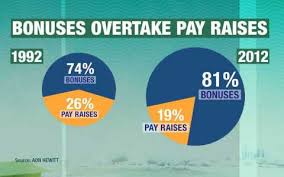What’s Causing Wage Stagnation?
< < Go Back
Unemployment is falling, and the last year has seen a 2.6 million job gain, yet most polls indicate that most Americans believe the economy is only getting worse. Why? James Sherk, senior policy analyst at the Heritage Foundation, says the answer is due to the many economic realities that are not touted in the official numbers: the declining labor force participation rate and weak wage growth.
Adjusting for inflation, wages between July 2009 — when America’s post-recession recovery began — and August 2014 have barely changed, rising just 1.4 percent over the entire time period. Why the stagnation? Sherk offers a few theories:
– The poor economy provides little incentive for business, and a drop in the demand for labor also creates a drop in price, which, in the case of labor, is wages. Sherk notes, however, that labor demand has improved in recent years with 2014 job openings at levels not seen since before the Great Recession. Even so, wages have remained low.
– When long-term unemployment benefits expired at the end of 2013, America’s labor supply increased, and an increase in supply usually leads to a drop in price. However, Sherk says that if supply is the reason, it can only be responsible for more recent changes, as benefits only expired at the end of 2013.
– Obamacare made hiring new workers more expensive. To offset those costs, employers reduce wages.
Sherk writes that it will take more time and data before it is clear which of these three reasons is the primary culprit behind wage stagnation.
More From NCPA:




